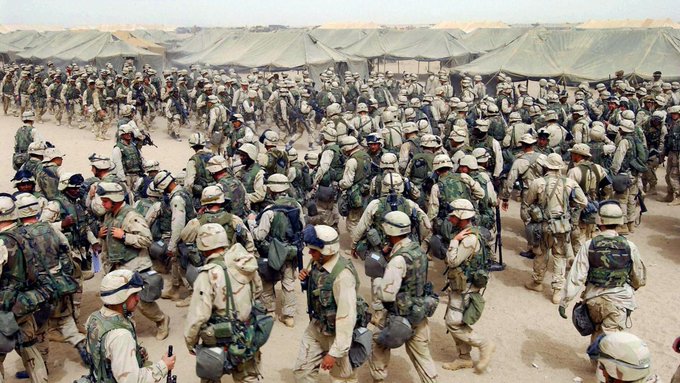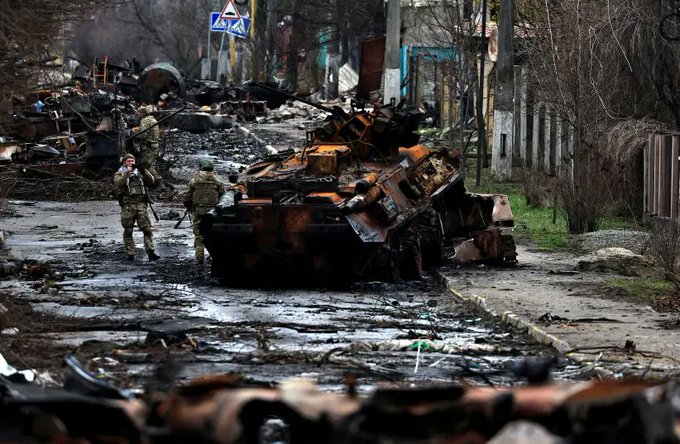The U.S. Army Combined Arms Directorate recently published an updated Army Techniques Publication, or "ATP", in the form of ATP 7-100.1 - RUSSIAN TACTICS.
Per the Directorate, the new ATP addresses Russian military doctrine with a focus on army ground forces and tactical ops in offense, defense, and related mission sets. It also discusses task organization, limitations, capabilities, and serves as a "foundation for understanding how Russian forces think and act in tactical operations."

"This ATP is not meant to represent how the Russians are currently fighting in Ukraine. Many insights and observations can be collected daily to either affirm or refute Russian doctrinal strategies and tactics, but it’s far too early to acknowledge any definitive changes in doctrine. The Military District and unit diagrams in this ATP may be affected based on early observations of the conflict in Ukraine. With so many Russian units now in Ukraine, it will take some time to determine a new laydown of forces if that becomes necessary. Furthermore, with the losses Russia has suffered, it is too early to assess the structure and equipping of any Russian unit for the next 5 to 10 years. We are still studying the conflict in Ukraine and continuing to revise our assessments."
This by itself may not seem significant, and truly it may invoke more of a "yeah, duh?" feeling than any significant insight. And yet, it yanks me back into the classroom where an extraordinarily intelligent Engineer officer told me and my fellow classmates something that has stuck with me 15 years later: "The day we cease being a learning organization is the day we are no longer relevant." The U.S. military must remain a learning organization at its core.
The Past & Present
There is no shortage of historical examples where militaries and empires either failed, or succeeded, to learn and apply lessons. Coalition success in Desert Storm was not achieved out of a vacuum; a brutal war in Vietnam that ultimately ended in failure pushed the U.S. military to enforce significant reforms - a revamped Officer corps, new/enhanced training manuals & tactics, and the emphasis of combined arms and interservice integration, which culminated in the AirLand Battle doctrine that dominated operational thinking until the late 1990's. On the opposite end of the spectrum, many would argue that the success of Desert Storm seduced some leaders into thinking Operation Enduring Freedom and Operation Iraqi Freedom would be quick, simple victories. While they may have been in a conventional success, history shows how quickly such assumptions can prove shortsighted.

The often-referenced (and perhaps oversimplified) French reliance on a static defensive line in the run up to World War 2 is a well worn example of an over-reliance on past strategies or tactics, leading to an incorrect assessment of changes in the tactics or doctrine of a foe. Russia's ongoing war in Ukraine, intended to be a swift victory, exposed dramatic weaknesses in logistics, military leadership, and an overall implied failure to learn from past experiences in Chechnya, Georgia, and Afghanistan.
On the flipside of that most recent example, Ukraine learned brutal lessons from the 2014 invasion and annexation of Crimea. Though that early conflict was marred by poor performance in some areas and success in others, Ukraine's vicious defense of Kyiv and their offensive success in Kharkiv and Kherson in 2022 has proved that it learned, and applied, lessons from those early failures. As with any organization, there is still room to learn.

The Future
The U.S. military, as well as its allies in NATO and in the Indo-Pacific, remain world leaders in terms of institutional learning. However, there are worrying signs of atrophy and risks to this. Political partisanship in the U.S. is rearing its head in the Officer Corps, with high ranking individuals openly campaigning for political candidates or making very public, widely shared statements that are blatantly derogatory to the administration and designed to undercut leadership in the White House.
If the military becomes a partisan tool, and is led by those enabling that, its ability to learn and apply lessons will suffer greatly as doctrine and training will be guided by the whims of a candidate instead of the needs of security.
In Europe, post-Cold War atrophy of military forces - gear, manpower, vehicles, and ammunition - are very much apparent. These nations provide some of the best and brightest leaders available to NATO, but without real investment and commitment to a revitalization of those forces, any attempts to share lessons learned and translate them into tactical or strategic operations will suffer.
Summary
The war in Ukraine is providing immense learning opportunities for NATO. The intellectual infrastructure to learn the right lessons, and avoid being seduced by the memories of victories like Desert Storm, remains strong. It will be up to Officers and NCO's alike to ensure their men and women in uniform are flexible, prepared, and ready for anything. It will be up to our senior ranking individuals and our schoolhouses to ensure that same flexibility and ability to apply lessons learned translates into our Field Manuals and ATPs. It will be up to our allies and friends in Europe and the Indo-Pacific to do the same, and to reverse that post-Cold War trend of atrophy in its forces.
War in Europe is back. War in the Pacific is possible. Success and failure lies with us - not our adversaries.




